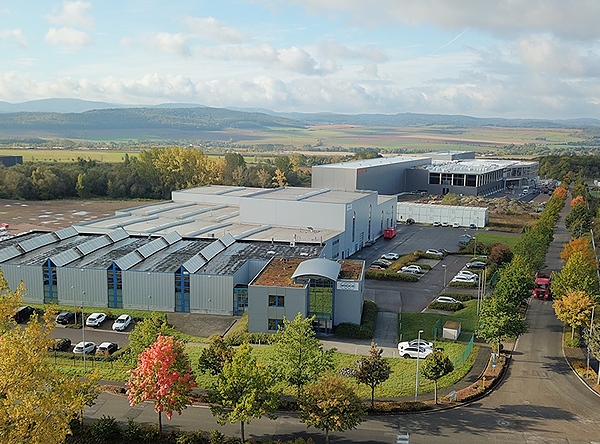WOCO
German car components plant to close / 80 jobs under threat / Other suppliers in trouble
The next victim of the difficult situation plaguing the European plastics processing industry is the German Woco Group (Bad Soden-Salmünster; www.wocogroup.com), whose plant in Eisenach has been selected for shutdown. According to media reports, injection moulding production is to be halted by the end of March 2024, after which the plant will be dismantled. Around 80 employees will be affected by the closure. Woco was unavailable at press time.
 The company’s plant in Eisenach, Germany (Photo: Woco) |
An initial strategic realignment looked like a positive development for the site in eastern Germany. After Woco acquired the plant in 2017, the company switched production from laundry baskets and toolboxes to products for automotive. But then the automotive industry became increasingly troubled.
“The switch to electromobility in the car industry is leading to a fundamental process of change in the companies,” wrote a regional newspaper said to be quoting from a Woco report. Apart from that, the pandemic and the economic disruptions through raw material and energy costs as a consequence of the war in Ukraine increased the pressure even more.
Related: Tough times for automotive suppliers
According to its website, Woco Group has four other plants in Germany, three in Mexico, two in the Czech Republic, India, and China, and one each in France, Romania, and the US. Last year, it posted sales of EUR 614 mn with a workforce of 4,600.
Before local media reported on the upcoming closure of the Eisenach plant, the bad news from German plastics processors, especially those serving the domstic car sector, had already been piling up. For example, insolvent automotive supplier Ditter Plastic (Haslach, Germany; www.ditter-plastic.de) faces the end of production at its German plants in Haslach and Hausach unless an investor is found. Compatriot ABS roof box maker Kamei (Wolfsburg; www.kamei.de) applied for the opening of insolvency proceedings in mid-August 2023. The reasons were said to be an inability to pass on high material costs, delays in product launches, and a lack of demand in the summer due to inflation.
15.09.2023 Plasteurope.com [253581-0]
Published on 15.09.2023

 German version of this article...
German version of this article...